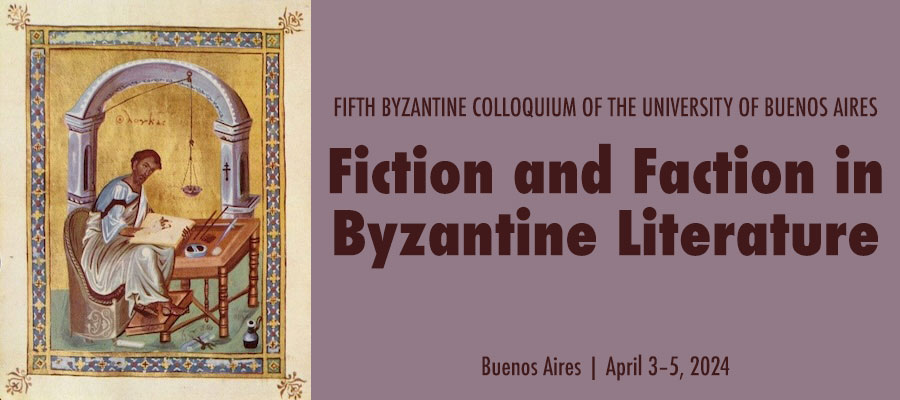Fiction and Faction in Byzantine Literature, Fifth Byzantine Colloquium of the University of Buenos Aires, Buenos Aires, April 3–5, 2024
Continuing the tradition of the Buenos Aires conferences, the topic of the fifth installment is primarily narratological. We propose to tackle fiction, or the absence of fiction, in the Byzantine millennium. In particular, we will address the question whether there is indeed any tension between the narration of ficta res and of events that ‘really happened’.
This topic raises a number of issues, for example whether fiction and realism are productive categories. The delineation of fiction itself can be problematized, as also the question whether it should be defined by its relation to a referent. In this regard, it is of paramount importance to ask how the Byzantines themselves understood what we now would label as ‘fiction’, and how their perspective relates to that of classical Antiquity.
The Byzantine narrative appears in several genres, of which two have been studied more widely in the past few years: hagiography and the novel. The first of these was traditionally associated with non fiction, although it abounds in fictional saints and non-historical events. The second one has been virtually always connected to fiction and to its so-called renaissance in the twelfth century.
Parallel to those and other narratives, theoretical treatises on rhetoric were written as well as commentaries on earlier narratives: by authors such as Photios and Eustathios of Thessaloniki and by Michael Psellos (e.g. his comparison of Euripides and George of Pisidia). These works appear to have used some theory of narration as a touchstone, or at least an opinion on what should be narrated, in which way, etc. It is relevant to have these in mind when tackling specific Byzantine narratives today.
Three topics will be central in the conference:
- Byzantine narratives that can be labelled as ‘fiction’ or ‘faction’, the well-known but problematic mixture of fact and fiction.
- The interaction between more or less theoretical treatises and actual narratives.
- The possible tension between fictionalization and factualization.
This list is non-exclusive. Proposals on other relevant topics are also welcome, including those that open up the topic to art and other non-written narratives from Byzantium.
